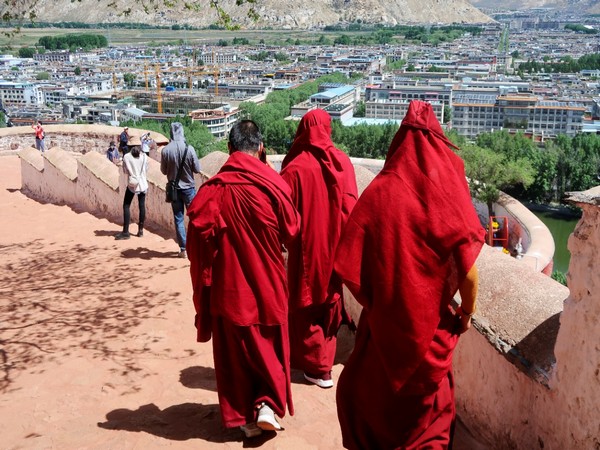Chinese Communist Party (CCP) has played the role of the most destructive force to Buddhism since Genghis Khan, contends Washington columnist Michael Rubin in the wake of growing concerns of rights groups about restrictions on Tibetan people imposed by Chinese authorities.
Writing for The National Interest magazine, Rubin said Beijing’s attempt to leverage Buddhism to China’s diplomatic benefit is even more cynical and audacious. According to Rubin, these efforts are akin to Turkey seeking to speak on behalf of Armenian culture or Serbia seeking to be the voice of Bosnian or Kosovar Muslims.
“Mao imposed atheism upon mainland China and did not tolerate any organizing philosophy that might compete with his brand of communism. However, China has never been devoid of religion and religious philosophies,” wrote Rubin, who is a senior fellow at the American Enterprise Institute.
While the CCP is best known for its attacks on religion, Rubin added that it has also taken a more cynical approach at other times.
Under Chinese President Xi Jinping, the American academic argued that CCP has increased its attempt to co-opt a religion it disrespects as a soft power Trojan horse among neighbors, who are growing anxious about China’s assertiveness.
“China nevertheless claims that Buddhism is an ancient Chinese religion, and not only hosts conferences but has also begun inviting Buddhist monks from Myanmar, Sri Lanka, and even Pakistan’s small Buddhist community,” he said.
Ironically, Beijing has sought to allow remaining relics to go on tour to cultivate goodwill with other countries, at a time when it has burned and buried the vast majority of China, Tibet, and Inner Mongolia’s Buddhist heritage.
According to Human Rights Watch (HRW), China’s authoritarian government under the Chinese Communist Party systemically represses fundamental rights.
Under President Xi Jinping, the government has arbitrarily detained human rights defenders, tightened control over civil society, media, and the internet, and deployed invasive mass surveillance technology.
Rights groups say that China imposes particularly heavy-handed control in Xinjiang and Tibet.
Authorities’ cultural persecution and arbitrary detention of a million Uyghurs and other Turkic Muslims since 2017 amount to crimes against humanity.

